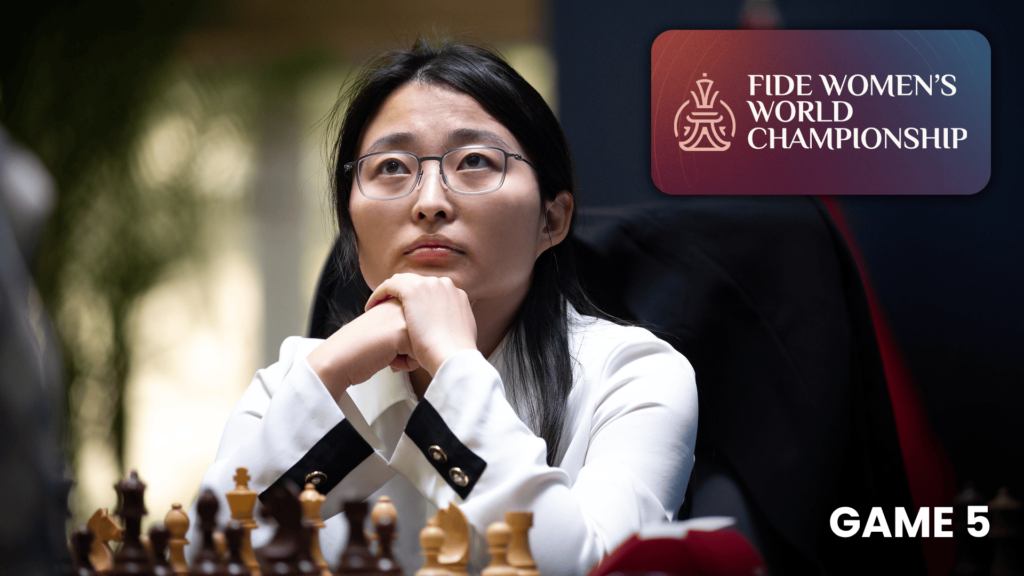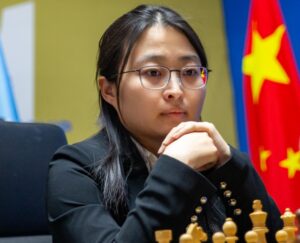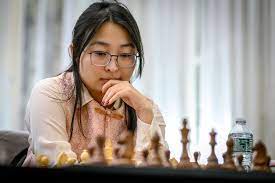
Ju Wenjun’s Dominance in Chess Shines Through Once Again as She Captures Her Fifth Women’s World Championship
In the world of competitive chess, few names resonate with the same level of quiet strength and calculated brilliance as Ju Wenjun. In a sport where precision meets perseverance, Ju has carved out a legacy that places her among the most elite grandmasters in history. Her recent triumph—claiming her fifth Women’s World Chess Championship crown—is not just a victory; it’s a resounding affirmation of her enduring excellence and unshakable dominance in the game.
This latest win doesn’t exist in isolation. It builds upon a remarkable journey that started in the bustling city of Shanghai, China, where Ju first discovered her love for chess. Today, that love has been transformed into a legacy that is not only reshaping women’s chess but also inspiring a new generation of players around the world.
“Juárez and Necaxa Set for Electrifying Showdown Under the Border Lights!”2025
The Journey to Greatness

Born on January 31, 1991, Ju Wenjun began playing chess at the age of six. From the very beginning, her talent was unmistakable. But talent alone is never enough in a game that demands long hours of study, strategic mastery, and mental endurance. Ju’s early training under renowned coaches in China helped her hone a style that was both pragmatic and deeply positional—a style that would become her trademark.
Her breakthrough moment came in 2004 when she won the World Youth Chess Championship in the girls under-14 section. It was a sign of things to come. Over the next decade, Ju climbed steadily through the international rankings, achieving the title of Woman Grandmaster (WGM) in 2006 and full Grandmaster (GM) in 2015. Unlike many players who plateau after early success, Ju kept evolving—an essential quality for any world champion.
Consistency at the Top
Ju’s first Women’s World Championship title came in 2018 after defeating Tan Zhongyi

. She successfully defended the title in 2020 against Aleksandra Goryachkina in one of the most closely contested matches in recent history. The match went to rapid tiebreaks, showcasing not just Ju’s deep preparation but her nerves of steel under pressure.
Her ability to perform at the highest level across multiple formats—classical, rapid, and blitz—sets her apart. Many champions excel in one domain; Ju dominates across them all. Her games are often marked by strategic depth rather than flashy tactics. She prefers slow, suffocating pressure—like water gradually eroding a stone—until her opponents are left without viable options.
In 2023, she once again faced Lei Tingjie in a highly anticipated championship match. It was a thrilling display of Chinese chess dominance, with both players representing the very best of the country’s extensive and well-supported chess infrastructure. Ju triumphed after a tense battle, reminding the world that experience, composure, and consistency are still vital in championship play.
The Fifth Title: A Historic Milestone

Winning a single World Championship title is an extraordinary achievement. Winning five is the stuff of legends. Ju now joins an elite group of players, including the likes of Nona Gaprindashvili and Maia Chiburdanidze, who have held long reigns over the women’s chess world.
Her fifth title is significant not just for the number, but for the context in which it came. The women’s chess field has grown stronger and more competitive than ever. Young talents from across the globe—India’s Rameshbabu Vaishali, Kazakhstan’s Bibisara Assaubayeva, and Russia’s Polina Shuvalova, among others—are rising rapidly. Yet Ju remains the gold standard.
What makes this feat even more remarkable is that Ju has never rested on her laurels. After each title, she returns to the board with the same humility and hunger. She studies diligently, learns from her defeats, and adapts to the changing metagame. Her approach is methodical, almost scientific—each move a result of deep calculation, each match a culmination of months of preparation.
Playing Style: Precision Over Drama

Unlike some champions known for dramatic sacrifices or flamboyant attacks, Ju Wenjun’s style is about quiet control. She often builds small positional advantages and patiently increases the pressure. Her endgames are particularly noteworthy—rarely flashy, but deeply instructive. Watching Ju in an endgame is like observing a sculptor chiseling away with unwavering focus until perfection is revealed.
This approach has made her a favorite among purists and coaches alike. Her games are often used as teaching tools to demonstrate key concepts like pawn structure, prophylaxis, and strategic planning. In many ways, she plays the way chess was meant to be played—not just to win, but to teach.
Impact on Chinese and Global Chess

Ju’s dominance is also a testament to China’s powerful chess development system. With state support, extensive training camps, and a growing domestic tournament scene, China has become a powerhouse in the world of chess. Ju stands at the center of this movement, not just as a player but as a role model.
Her success has helped elevate the status of women’s chess in China, encouraging more young girls to take up the game. While men like Ding Liren have earned headlines in the open category, Ju’s repeated success has ensured that women’s chess in China is equally celebrated and respected.
Beyond China, Ju has also become an ambassador for women in chess. In a game that has long grappled with gender disparity, she represents progress—not just in terms of titles, but in visibility, sponsorship, and respect. Her professionalism and grace have earned her admirers far beyond the chessboard.
Challenges and Resilience
It’s easy to see only the victories, but Ju’s path hasn’t been without obstacles. Like many champions, she has faced criticism, fatigue, and intense scrutiny. Maintaining top form over nearly a decade is a mental marathon, especially in a sport where one bad tournament can derail months of progress.
She has also had to navigate the global disruptions caused by the COVID-19 pandemic, which affected training, travel, and tournament schedules. Yet she emerged from this turbulent period stronger than ever, showing her ability to adapt not only on the board but in life.
Legacy and the Road Ahead

With five Women’s World Championship titles to her name, Ju Wenjun’s legacy is already secure. But she shows no signs of slowing down. Her passion for the game remains undiminished, and her eyes are likely set on more titles, more tournaments, and more milestones.
She continues to play in mixed events, holding her own against top male grandmasters. Her participation in high-level open tournaments has helped break down the perceived barriers between men’s and women’s chess, further solidifying her impact on the sport.
As she looks toward the future, one question lingers: How far can she go? Could she, like Judit Polgár before her, redefine what it means to be a female player in a traditionally male-dominated space? Only time will tell. But if history is any guide, never bet against Ju Wenjun.
Conclusion: A Champion Beyond Titles
Ju Wenjun is more than just a champion; she’s a symbol of excellence, resilience, and evolution. Her fifth Women’s World Championship title is a reminder that greatness isn’t born overnight—it’s built move by move, game by game, year after year.
In every match she plays, in every thoughtful move she makes, Ju Wenjun redefines what it means to dominate—not with bluster or bravado, but with elegance, intelligence, and quiet power. Her reign is not merely measured by the number of trophies on her shelf, but by the mark she leaves on the game itself.
And in that regard, Ju Wenjun is not just a player of her generation—she’s a legend for all time.





